With its EV sales in Europe and the U.S. slowing, Tesla has become more dependent on sales in China. But the competition is fierce, and trade tensions could hamper Elon Musk’s ambitious future. Musk’s central role in the incoming Trump administration further complicates matters.
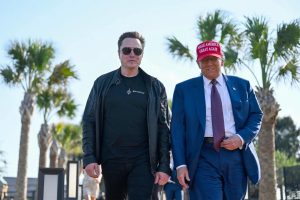
Elon Musk is now when of the most influential figures working with Donald Trump as he prepares to return to the White House.
Elon Musk has become the world’s wealthiest man by selling electric cars and even though President-elect Donald Trump is an EV skeptic, the Tesla CEO also emerged, by all accounts, from the 2024 election as one of the most powerful businessmen in the United States.
But the fact is Musk is also deeply entangled with Trump’s nominal nemesis, the People’s Republic of China. And this is creating some potentially serious conflicts of interest as he emerges an influential force in the incoming president’s administration.
Tesla needs China
“Half of Tesla’s business is in China,” said John Murphy, the chief automotive analyst for Bank of America during a pre-Thanksgiving stop in Ann Arbor, Michigan. Speaking at the University of Michigan’s annual Economic Outlook Conference, Murphy added that. “Elon is going to have to learn to dance with Xi Jinping and Trump at the same time.”
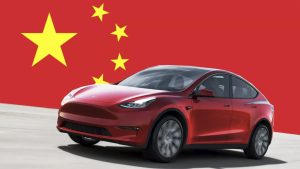 While Tesla does not break out financial information by region, there’s enough available information to know of the automaker’s growing dependence on the Chinese market. Analysts like Murphy say sales in the Asian nation were critical to Tesla’s strong third quarter financial report after the company suffered weak sales and earnings during the first half of 2024.
While Tesla does not break out financial information by region, there’s enough available information to know of the automaker’s growing dependence on the Chinese market. Analysts like Murphy say sales in the Asian nation were critical to Tesla’s strong third quarter financial report after the company suffered weak sales and earnings during the first half of 2024.
Tesla and Musk’s dependence on China is evident from the numbers the EV maker does disclose. Among the slides Tesla distributed as part of financial information disclosed after releasing its third quarter earnings is a slide outlining the company’s existing capacity for building vehicles in North America, Europe, and China.
Sizable chunk of Tesla production is in Shanghai
A large piece of the company’s industrial capacity is in China, slightly more than 40% of its global total, according to the information released by Tesla. That’s significantly more than its three other plants in Fremont, California; Austin, Texas; and Berlin, Germany.
Tesla reported deliveries of 462,890 for the third quarter of 2024. While Tesla does not report regional sales numbers for each quarter, it sold 181,885 vehicles in China during the third quarter, according to Michael Smitka, professor-emeritus of economics at Washington and Lee University, using data from sources in China. A long-time student of the Chinese economy, Smitka said the figure represents more than 39% of Tesla’s total sales for the quarter, underscoring how important China is to the EV maker’s overall financial health.
Smitka also noted, during a presentation during the recent Automotive Futures conference on China, that Tesla is closely aligned with CATL, the giant Chinese batteries, which provides the shorter-range LFP batteries used in Tesla vehicles around the world. CATL, it should be noted, has been a frequent target of Trump’s Republican allies opposed to its efforts to set up plants in the United States.
More Musk News
- Is Musk’s Political Shift Hurting Tesla?
- CyberCab Highlights Musk’s Glimpse of Tesla’s Future
- Tesla Hauls Rivian Into Court Over Alleged Trade Secret Thefts
Chinese domestic brands “come of age”
Musk says he expects Tesla’s sales to grow by 20% next year as it brings on new variations of its most popular models. But reaching the goal, particularly in China, will be a challenge, analysts note.
Homegrown Chinese companies, such as BYD, NIO, Geely, Li, and others, are remaking the global auto industry, just as the Japanese carmakers did in the 1970s, the South Koreans did in the 1990s and Tesla did in the 2010s. They’re displacing older, more established companies, observes Stephen Dyer, co-leader of Alix Partners’ office in China.
“Today, Chinese automakers have come of age and represent as much of a disruptive force now as Japan, Hyundai, and Tesla have in previous generations,” says Dyer during his presentation at the Automotive Futures organization annual conference.
Rapid product development
Dyer noted homegrown brands are replacing the global companies – such as General Motors, Volkswagen and Ford — which held two-thirds of the Chinese market during the first two decades of that country’s automotive boom. Significantly, BYD topped Tesla in terms of global sales during the final quarter of 2023 – even though the Chinese domestic automaker had no presence in the U.S. market.
Dyer said the new Chinese companies rely on faster product development cycles of only 1.6 years, compared to the three years common among Korean, Japanese, North American and European carmakers. They also have proven adept at developing and producing new in-cabin features, such as wider and faster screens, popular among Chinese companies, says Dyer.
Tesla product development pace lags
For his part, Musk remains bullish. “Our company is currently between two major growth waves: the first one began with the global expansion of the Model 3/Y platform and we believe the next one will be initiated by advances in autonomy and introduction of new products, including those built on our next generation vehicle platform,” he said during a Q3 earnings call.
But for all Musk’s bluster Tesla’s product development process has never been very quick. It took five years to develop the Cybertruck and the CyberCab will not appear, by Musk’s own admission, for another two years.
Smitka also noted Chinese manufacturers are quickly diversifying their product lineups to keep pace with fickle Chinese customers by offering plug-in-hybrids and EREVs — where a small internal combustion engine continually recharges the battery giving the vehicle more range – along with EVs.
Musk has always said Tesla does not need anything but BEVs. And even while Chinese automakers roll out a procession of low-priced EVs, the CEO recently killed off Tesla’s own entry-level SUV program.
Chinese innovation outpaces global rivals
Chinese automakers are using AI for trend forecasting and design, according to Yun Lou, a consultant for SophonX LLC, who has worked as an executive at a number of suppliers during his career.
Strength of the Chinese Automotive Industry, diligence and innovation, the capability of its established supply chain, government support, he says. The capacity has put Chinese companies ahead in development of technology required for Level 3 autonomy and autonomous vehicles.
Baidu, the Chinese equivalent of Google and ChatGPT, has already developed an automotive platform. “It’s already developed the Apple Car before Apple,” says Lou. While Waymo has a few dozen autonomous vehicles on the road in the U.S. and Tesla is promising to deliver fully autonomous vehicles within two years, Lou notes, Baidu has more than 1,000 AVs operating in Chinese cities and is adding more every day, Lou adds.
Conflict over trade with China rises as Trump prepares his return
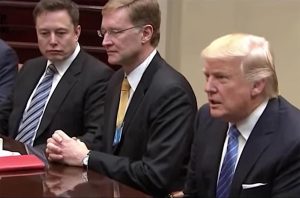
There’s little doubt Musk has had a big influence on Trump. But will that create a real conflict of interest going forward?
Tesla entered China more than a decade ago, before Xi tightened his grip on power and China and prior to the first Trump administration, during which the then-president ramped up tariffs on many goods from China. His successor, Joe Biden, quadrupled duties on Chinese-made EVs, for now locking out brands like BYD. And Trump has indicated plans to further crack down on Chinese imports. The incoming president has many allies who would prefer to maintain tension between the U.S. and the People’s Republic.
Not everyone wants to accelerate a trade war. Kyle Sullivan, vice president of the U.S. China Business Council, which represents U.S. dozens of companies operating in China, said during the Automotive Futures conference most of its members prefer to continue doing business in China and are looking for ways to moderate actions by the new Trump administration. “We’re looking for competition with China,” he said, and 80% of the U.S. companies now in China are planning new investments.
But if Trump does follow through on a threat to raise tariffs on Chinese goods by 10% across the board, Tesla-watchers are well aware that could open the door to Chinese retaliation. What form that might take, and whether the Texas-based EV maker could find itself in the crosshairs is yet unclear.
It does, however, create a potential conflict of interest for Musk should he actually take on a formal position in the Trump administration following the next president’s January 20 inauguration. Whether Musk might then try to get Trump to back off on new tariffs remains to be seen but as long as he retains his position as Tesla CEO anything he does to influence the next president on China trade will raise serious flags, in this case, quite red.

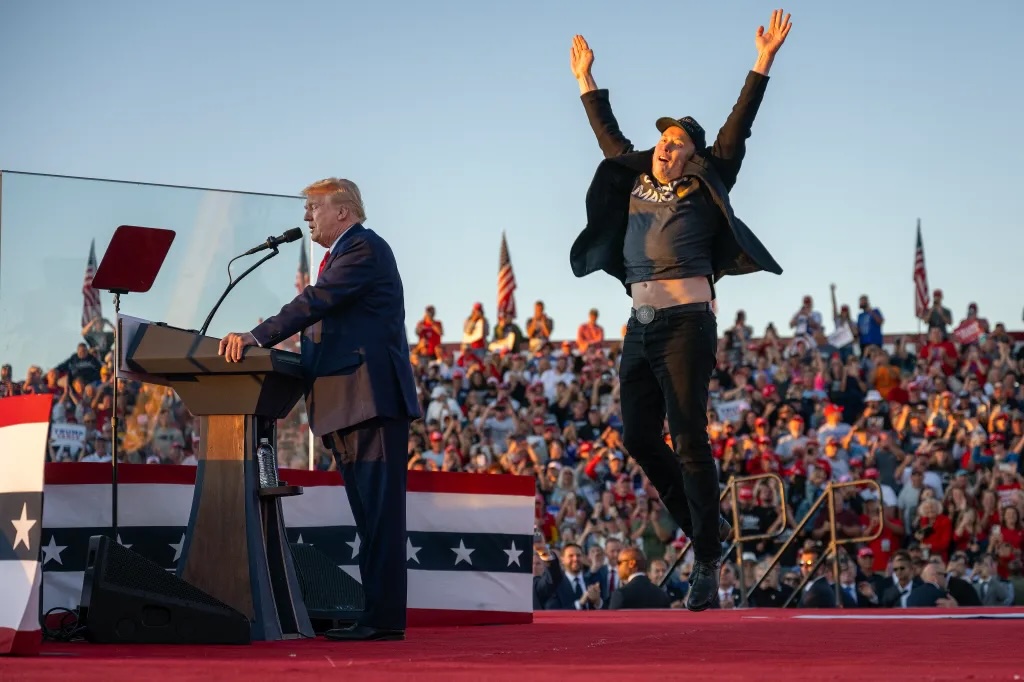
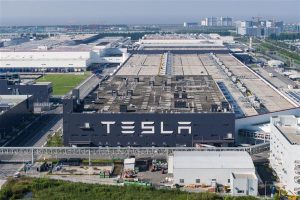
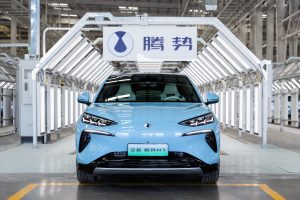
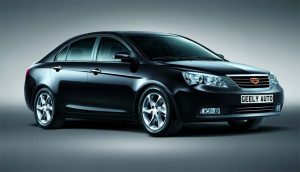
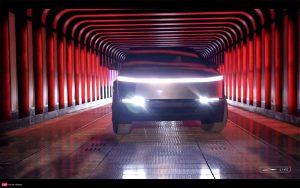
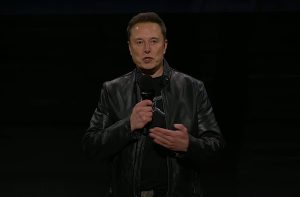
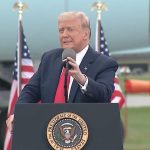


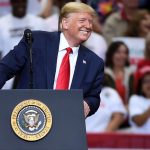
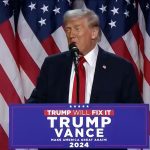
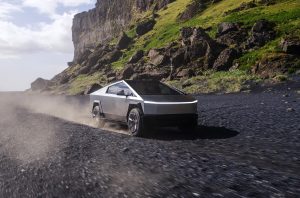
0 Comments